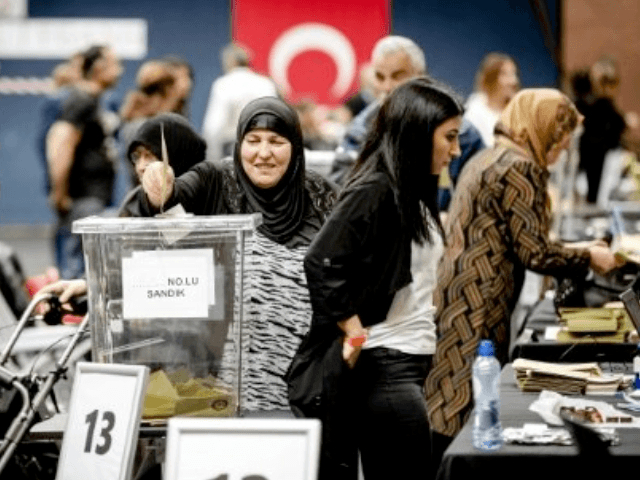THE HAGUE (AFP) – Turkish voters based in The Netherlands started casting early ballots Wednesday in a referendum which could boost President Recep Tayyip Erdogan’s powers, amid an ongoing diplomatic spat between Ankara and Europe.
Polling stations to accommodate some 250,000 eligible Dutch-Turkish voters — most with dual citizenship — opened at 0700 GMT at three venues across the country, officials and news reports said.
“So far, people have been coming to vote in dribs and drabs, mainly small groups,” said Johan Tensen, communications chief at Amsterdam’s RAI conference centre, one of the voting venues.
“We are, however, expecting the majority of voters to come over the weekend,” Tensen told AFP.
Voting stations in Amsterdam, The Hague and the central city of Deventer will remain open until Sunday night for expatriates to cast their ballots, broadcaster NOS said.
Voters in six other European countries, including the largest group of some 1.4 million eligible people in Germany, began casting their ballots last week with a total of around three million allowed to vote in 120 Turkish missions in 57 countries.
Turkey itself will vote on April 16 on the proposal to create an executive presidency and abolish the post of prime minister.
The referendum sparked a bitter row when Germany and The Netherlands blocked campaign events by Turkish ministers last month, leading a furious Erdogan to accuse both countries of using “Nazi” methods.
A demonstration in the Dutch port city of Rotterdam flared into violence last month when riot police used dogs, horses and a water cannon to break up protesters, angered when the Dutch blocked Turkish ministers from addressing the rally.
Meanwhile, Ankara’s European campaign leader Mustafa Yeneroglu on Wednesday called for the Dutch government to apologise over the incident.
“We are expecting an apology from The Netherlands,” he told Dutch popular daily tabloid Algemeen Dagblad.
“Our ministers were blocked, police used dogs and horses to chase people wanting use their freedom of expression,” Yeneroglu said.
Outgoing Dutch premier Mark Rutte last month said an apology would not be forthcoming.
Tensions have been running high among the country’s sizable Turkish community since an abortive coup against Erdogan in July last year, with complaints of intimidation against both pro- and anti-Erdogan supporters.

COMMENTS
Please let us know if you're having issues with commenting.